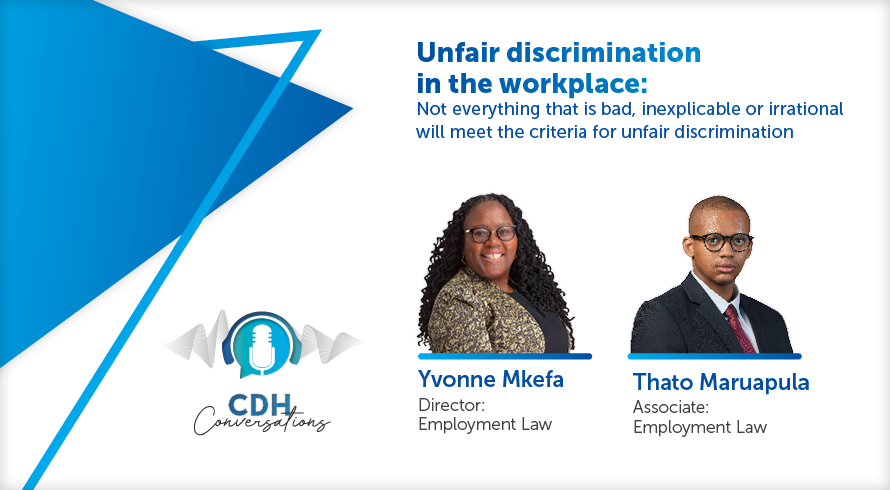Recognition and enforcement of Russian Lugovoy Law judgments in South Africa
At a glance
- If a party obtains a judgment in their favour under Russian Federal Law 171-FZ (the “Lugovoy Law”), it is possible that enforcement will be needed in other jurisdictions. Enforcement of Lugovoy Judgments could be challenging, or impossible, in some jurisdictions.
- The recognition of a Lugovoy Judgment is possible in South Africa, as long as it passes certain elemental tests.
- This will be considered on a case-by-case basis and be largely dependent on the parameters of the judgment, especially if there is an astreinte-type penalty attached to it.
If a party obtains a Lugovoy Law judgment in their favour (a “Lugovoy Judgment”), it is possible that enforcement will be needed in other jurisdictions, for example if the assets of the judgment debtor are only located outside of Russia. Enforcement of Lugovoy Judgments could be challenging, or impossible, in some jurisdictions. For example, the European Union’s fifteenth sanctions package in December 2024 expressly prohibits its courts from recognising or enforcing Lugovoy Judgments.
Conversely, other jurisdictions have adopted a more pragmatic approach, assessing the legitimacy of invoking the Lugovoy Law on a case-by-case basis. In Magomedov and Ors v PJSC Transneft and Ors [2024] EWHC 1176 (Comm) the English court demonstrated a willingness to consider circumstances in which the Lugovoy Law could be invoked justifiably or in good faith, acknowledging that it may be relied on to address a “real juridical problem, namely that Russian parties cannot get access to justice because of the impact of sanctions”, and that in that particular instance, “the Moscow Court was entitled to be concerned about [the Russian party] obtaining access to justice in England; so, it cannot be said that its conclusion … was a manifest injustice”.
This article explores the potential for enforcing a Lugovoy Judgment in South Africa. For a separate analysis of the Lugovoy Law’s implications for international arbitration, please refer to our article here.
Are Lugovoy judgments enforceable in South Africa?
South African courts have not yet determinatively ruled on the recognition and enforcement of a Lugovoy Judgment. Unlike the European Union, South Africa has not taken any steps to prohibit outright the recognition of Lugovoy Judgments or deter commercial entities from seeking to rely on the Lugovoy Law.
In principle, Lugovoy Judgments (like other Russian court judgments), are capable of recognition and enforcement in South Africa. There is no requirement for the reciprocal enforcement of South African court judgments in Russia.
Although there are no formal bilateral treaties or multilateral conventions between Russia and South Africa, Russian court judgments can still be enforced under South Africa’s common law framework.
Are “astreinte” financial penalties enforceable?
Some Lugovoy Judgments have included the imposition of very large fines and penalties (known as “astreinte”) on non-Russian parties. In South Africa, as in many common law jurisdictions, relief that constitutes a penalty or punitive damages far in excess of loss or damage suffered may not be enforced as it may be considered contrary to South African public policy.
In Jones v Krok [1996] (1) SA 504 (T), for example, the South African court refused to enforce a portion of a foreign judgment that awarded USD 12 million in punitive or exemplary damages in addition to USD 13 million in compensatory damages, holding that the punitive component was so exorbitant it violated South African public policy.
However, the courts retain discretion and may enforce such penalties where they are not strictly punitive or are grounded in legitimate legal or policy considerations. In Danielson v Human [2017] (1) SA 141 (WCC), the South African court upheld the enforcement of treble damages on the basis that they served a compensatory function rather than a purely punitive one. If it can be demonstrated that astreinte-type penalties serve a justifiable objective, such as ensuring compliance with legitimate legislation, South African courts may be open to enforcing them. The courts will consider the issue on a case-by-case basis.
In June 2024 the Gauteng Division of the High Court in South Africa gave permission to a Russian entity to attach assets held by Google South Africa, a subsidiary of Google LLC, in support of a judgment that had been obtained in 2023 from the Moscow Arbitrazh Court. The judgment includes significant astreinte sums. While the court has only at this stage ordered attachment and not enforcement of the Moscow judgment, a potential future order in South Africa could include enforcement of the astreinte component.
What will South African courts consider when determining whether to enforce a Lugovoy Law Judgment?
South African courts will not re-open or re-examine the merits of the case, nor will they revisit the factual or legal findings made by the Russian courts, except to the extent necessary to determine whether enforcement is consistent with the principles outlined below. Instead, the courts will assess whether the below requirements for enforcement – primarily established in Jones v Krok [1995] (1) SA 677 (A) – have been met.
Jurisdiction
The Russian court must have had jurisdiction according to international jurisdictional principles recognised by South African courts. This requires that the defendant (i) had domicile, residence or voluntary physical presence in Russia; or (ii) submitted to the jurisdiction of the Russian courts by conduct or agreement.
The fact that a Russian court had jurisdiction in accordance with the provisions of the Lugovoy Law does not necessarily mean that South African courts will determine that the Russian courts had jurisdiction.
If the judgment debtor asserts that the Lugovoy Judgment was issued in contravention of an agreement to arbitrate or litigate overseas, South African courts will consider whether the original dispute resolution clause has been rendered void, inoperative, unenforceable or incapable of performance. In making this assessment, the courts may take into account several factors, including whether:
- The original clause is incapable of performance on the terms previously agreed by the parties. For example, if the clause provides for a court, arbitral institution, arbitral tribunal or jurisdiction that that is no longer practically available to Russian parties, it may be incapable of performance. This could include an inability to make payment of court or arbitral fees due to international restrictions on the transfer of funds, the unavailability of a specified tribunal that is no longer willing or able to accept an appointment, or an arbitral institution exercising a right to decline to act on an instruction.
- The terms of the original clause can no longer ensure a fair and impartial process for Russian parties. For example, if the clause provides for a tribunal, seat or court in an ‘unfriendly jurisdiction’, or because the Russian party is unable to retain appropriate independent legal advisers of their choice in that jurisdiction.
Finality
The judgment must be final, and not have become superannuated in effect.
A foreign judgment is considered ‘final’ if the court that granted it does not have the power to alter it, even if it is in the process of being appealed before a superior court. If an appeal is pending, the South African courts have discretion to decide whether to stay enforcement proceedings until the appeal process is finalised. In the interests of justice, the courts are likely to follow this route, unless exceptional circumstances can be shown to enforce, pending the outcome of the appeal process.
Whether the judgment is final will depend on the stage of proceedings and the process, rules and court systems applicable to appeals and reviews for the relevant Russian courts under the Russian Civil Procedure Code or legislation.
Public policy
Recognition and enforcement will be declined if enforcement would be contrary to South African public policy.
The scope and application of public policy is not defined, but actions which are contrary to the requirements of natural justice, or contravene principles of good faith, fairness and equity, may be found inconsistent with public policy. Therefore, the circumstances of the parties agreeing any contrary dispute resolution clause, the reasons the clause was not complied with, and the manner in which proceedings were conducted and defended in Russia will be relevant, including whether the defendant had an opportunity to properly present their defence and the court was impartial.
Many of the considerations relevant to the court’s decision on jurisdiction will also be relevant to public policy. For example, South African courts will balance the public policy principles that require Russian parties to have access to fair and impartial proceedings with the public policy imperative to recognise and uphold contractually agreed dispute resolution clauses (including in light of South Africa’s commitment to recognise and uphold arbitration agreements as a signatory to the New York Convention on the Recognition and Enforcement of Foreign Arbitral Awards).
As outlined above, punitive or duplicative damages may be considered to be contrary to public policy.
Fraud
Recognition and enforcement will be declined if the judgment was obtained by fraudulent means.
However, if an allegation of fraud had already been raised and determined by the Russian court, South African courts are unlikely to re-visit the allegation as the appropriate forum would be to challenge or appeal the decision before the relevant Russian court.
Penal or revenue law
Recognition and enforcement will be declined if the judgment is penal or involves Russian revenue law.
Protection of businesses
Recognition and enforcement may be declined if the judgment contravenes the Protection of Businesses Act 99 or 1978. This legislation provides that enforcement, absent ministerial permission, is not permitted in cases relating to a “production, importation, exportation, refinement, possession, use or sale of or ownership to any matter or material”.
In practice, South African courts have established that this relates to raw materials or substances from which things are made, and not to manufactured goods. Ministerial consent is rarely refused.
Conclusion
The recognition of a Lugovoy Judgment is possible in South Africa, as long as it passes the elemental tests set out above. This will be considered on a case-by-case basis and be largely dependent on the parameters of the judgment, especially if there is an astreinte-type penalty attached to it.
The information and material published on this website is provided for general purposes only and does not constitute legal advice. We make every effort to ensure that the content is updated regularly and to offer the most current and accurate information. Please consult one of our lawyers on any specific legal problem or matter. We accept no responsibility for any loss or damage, whether direct or consequential, which may arise from reliance on the information contained in these pages. Please refer to our full terms and conditions. Copyright © 2026 Cliffe Dekker Hofmeyr. All rights reserved. For permission to reproduce an article or publication, please contact us cliffedekkerhofmeyr@cdhlegal.com.
Subscribe
We support our clients’ strategic and operational needs by offering innovative, integrated and high quality thought leadership. To stay up to date on the latest legal developments that may potentially impact your business, subscribe to our alerts, seminar and webinar invitations.
Subscribe




